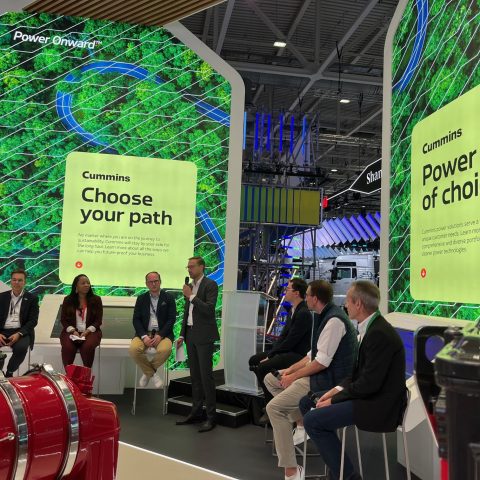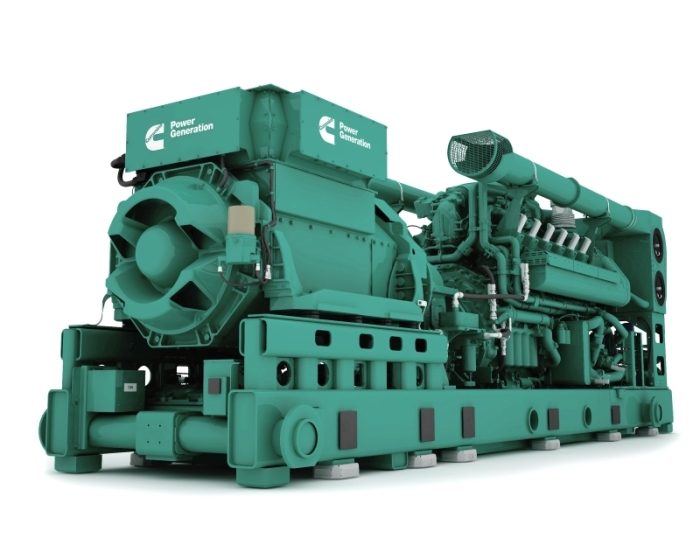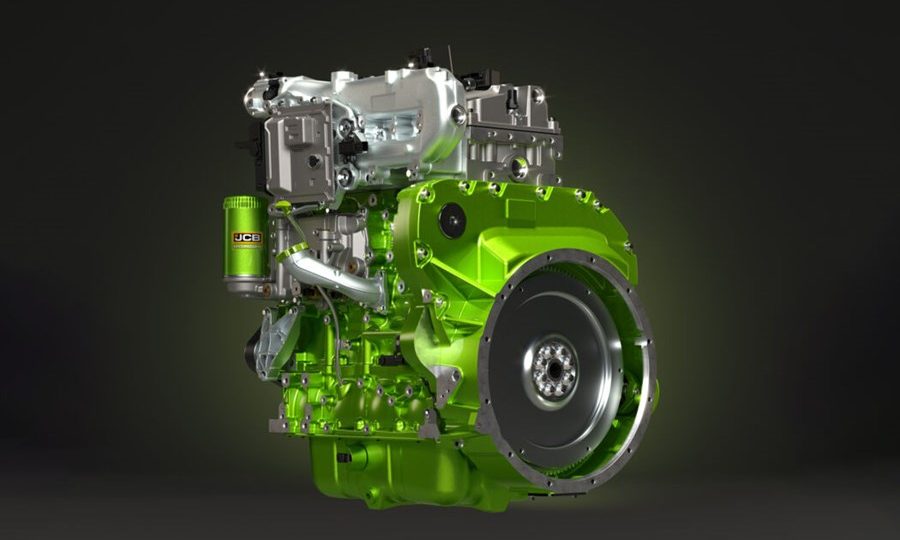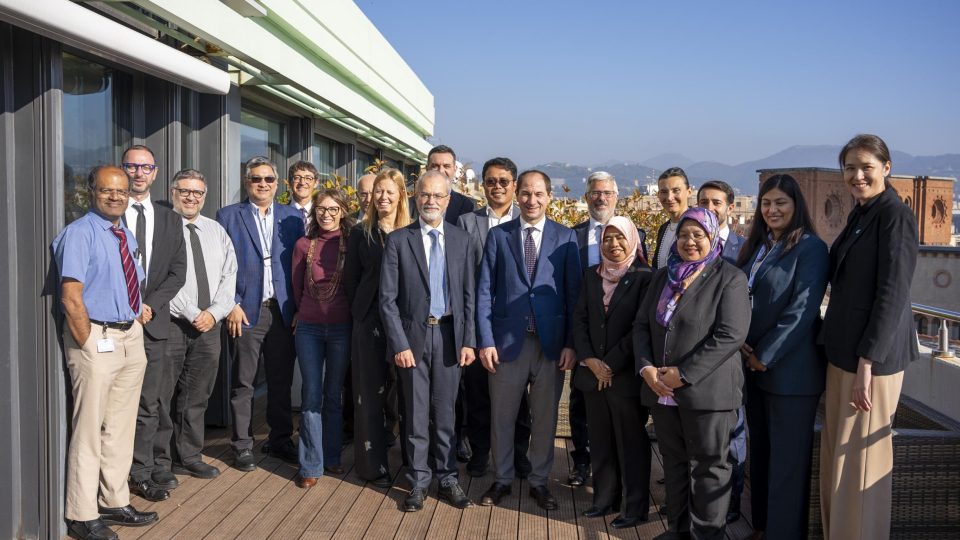Cummins and the Hydrogen Engine Alliance
Cummins, alongside the Hydrogen Engine Alliance, Bosch and other industry partners have highlighted how hydrogen internal combustion engines (H2-ICE) can power strong, clean energy economies at an event hosted by Cummins at IAA Transportation 2024.

Cummins, alongside the Hydrogen Engine Alliance, Bosch and other industry partners have highlighted how hydrogen internal combustion engines (H2-ICE) can power strong, clean energy economies at an event hosted by Cummins at IAA Transportation 2024.
Speaking as part of a Hydrogen Engine Alliance/Allianz Wasserstoffmotor event, several high-profile organisations, including Cummins, MAN, Bosch, DSLV Federal Association for Freight Forwarding & Logistics and the European Commission, provided commentary on the technology’s role in global decarbonisation and its ability to progress carbon reductions practically, at a lower upfront cost than current zero-carbon alternatives.
The Hydrogen Engine Alliance is a body of manufacturers and industry representatives that share expertise to support the research and development of sustainable hydrogen internal combustion engine technology. At the event, the topic of discussion was the technology’s potential to support decarbonisation of global markets.
Jane Beaman, Vice President Global On-Highway and Pick-Up Business at Cummins, said H2-ICE is set to be a crucial transitional technology, as it uses the same operating principles as the engines that have been powering the industry for decades.
Speaking at the event, Beaman explained: “Hydrogen internal combustion engines not only look and sound like an engine, their parts are highly similar to those used in existing vehicle designs and business operations, making for more straightforward integration for vehicle manufacturers. They run on zero-carbon hydrogen fuel and generate extremely low emissions, which makes them a key technology to meet global carbon reduction goals.”
The event highlighted consensus amongst industry partners that for hydrogen to reach its full potential, infrastructure needs to be developed to provide widely accessible and affordable fuel. Legislative consistency on the categorisation of H2-ICE as a zero-emissions solution was also referenced as a means to support adoption of the technology across international markets.
Jane Beaman explained: “Progress is being made in certain regions globally, but we all have work to do. Cummins is committed to partnering with our customers, policymakers and the wider industry to advocate for technologies that power strong, clean energy economies. Inclusion of hydrogen ICE in more carbon reduction policies worldwide will accelerate hydrogen infrastructure projects, that in turn will lead to broader adoption of the technology.”
No one size fits all solution
The Hydrogen Engine Alliance discussed a range of power technologies, in doing so there was general recognition that to meet emissions reduction targets, this diverse range will be needed. This will include alternative zero emission technologies like fuel cells and battery electric solutions, as well as next generation internal combustion engine platforms. H2-ICE was touted as a key transitional technology at the event, with the ability to use customers’ existing combustion engine expertise, operational practices and supply chains to reduce emissions, whilst keeping businesses and industries running.
Jan Röhrl, Executive Vice President PowerSolutions of Bosch, who presented at the event said: “We need all powertrain technologies in order to meet diverse customer and environmental needs. There is not one or the other – it is a clear one and the other! The future powertrain solutions – battery-electric, fuel cell, hydrogen internal combustion engine and advanced diesel with renewable liquid fuels – need to complement each other. There is a place in the market for every solution.”
Complementary hydrogen technologies
Throughout the event, a major focus was on H2-ICE and hydrogen fuel cells (FCEV) as complementary technologies. Growth in H2-ICE would drive increased hydrogen fuel production, lowering costs and generating customer acceptance of hydrogen as a fuel. H2-ICE could also support carbon reductions in a shorter time-period due to its use of existing technology and supply chains, progressing the development of hydrogen infrastructure ready for wider scale adoption of hydrogen fuel cells. When fuelled with hydrogen generated from renewable energy, such as solar, wind or hydropower, fuel cells produce zero tailpipe emissions and are seen as a key decarbonisation technology, alongside battery electric and hydrogen internal combustion engines.
Jane Beaman concluded: “Meaningful discussions focused on the future of hydrogen engines are extremely beneficial to supporting the future growth of this technology. For me, the biggest success of this event was organisations and experts across the industry working in unison to develop a portfolio of technologies, so that we can all make bigger strides towards cleaner power. Complemented with a global policy platform conducive to growth and greater impetus on infrastructure, we can, and will, collectively realise the potential of hydrogen as a fuel and hydrogen combustion engines as power solutions.”









